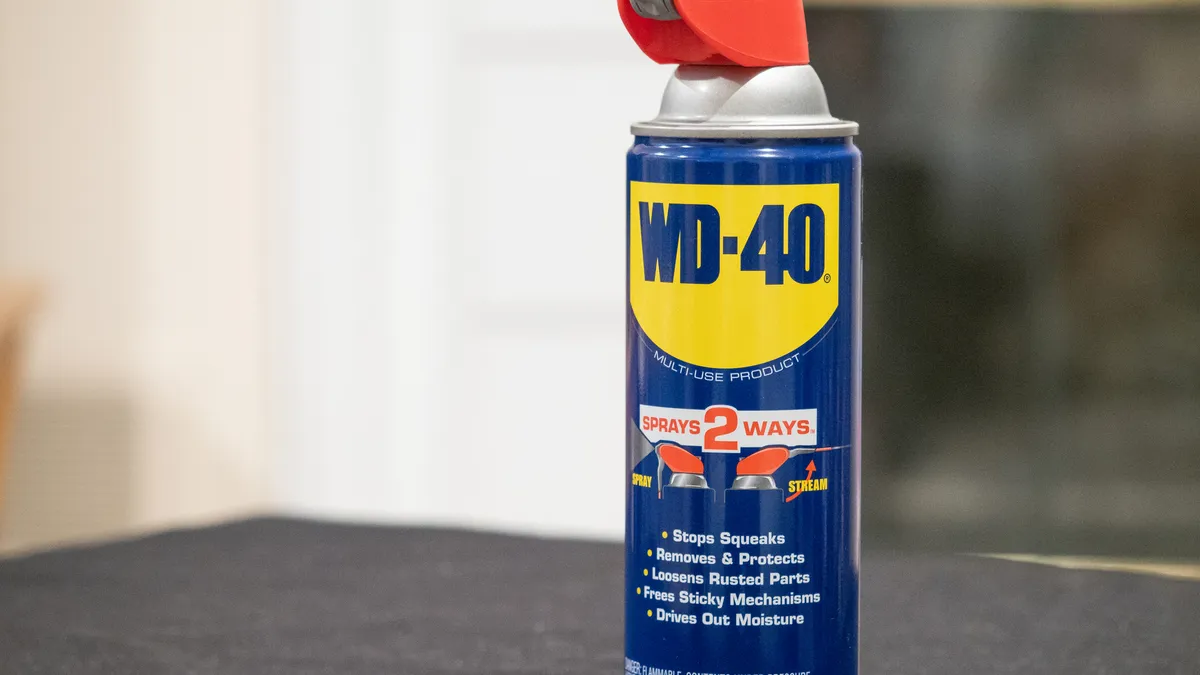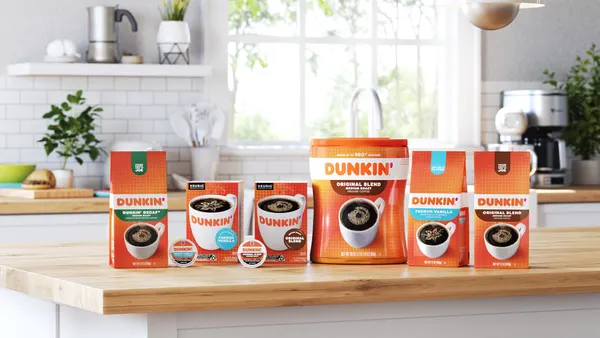Dive Brief:
- WD-40 Company's initiative to decentralize its supply chain and bring sourcing closer to customers is offsetting the impact of tariffs, according to its July earnings call.
- Since the start of the fiscal year on Sept. 1, the chemical company has strengthened global partnerships with key suppliers, which improved efficiencies, optimized networks and brought cost savings that bolstered gross margins, executives said.
- "Where there is, particularly with our Americas region, some tariff exposure, particularly around steel cans with the tariffs, we are managing to offset that globally in terms of countermeasures from supply chain initiatives, making it virtually a wash globally for us," CFO Sara Hyzer told analysts.
Dive Insight:
WD-40 is one of several brand manufacturers modifying their supply chains to mitigate the impact of tariffs. Others include Clorox tapping alternative sourcing, Colgate-Palmolive shifting production and Procter & Gamble initiating a supply chain reorganization.
WD-40's diversified supply chain will minimize the effect of potential tariffs by sourcing raw materials and manufacturing products close to the company's customers and end users, CEO Steve Brass said during an April earnings call.
"This decentralized nature of our supply chain helps a lot," he said. "We've got a lot of supply chain optimization measures happening this fiscal year."
In China, the company has avoided retaliatory tariffs by manufacturing locally for Asian markets, using China nationals to operate its business there, Brass said. "Within China at the moment, we are kind of seen as a local brand in many places we operate around the world."
In Dubai, the company partnered with a manufacturer to deliver products to customers in the region within five or seven days, much quicker than the one month previously required for maritime shipments, he said in the July call. The change has also meant local partners could reduce their on-hand inventory.
Nevertheless, Brass acknowledged that tariffs could impact the company's markets in the Americas, especially Mexico and Canada. The Americas account for 6% of WD-40's global business, he said in the company’s April earnings call. As a precaution, the company increased inventory in specific markets to reduce the immediate impact of tariffs, he added.
WD-40’s supply chain shifts should help the household products company reach its gross margin goal of 55% to 56% during the current fiscal year, one year earlier than initially planned, Hyzer said.
"It is great to see our supply chain initiatives having an impact on our overall gross margin results," she said in the July call.
After fiscal 2025 ends on Aug. 31, the company expects higher inflation and will likely need to "modestly adjust prices," Brass added.















